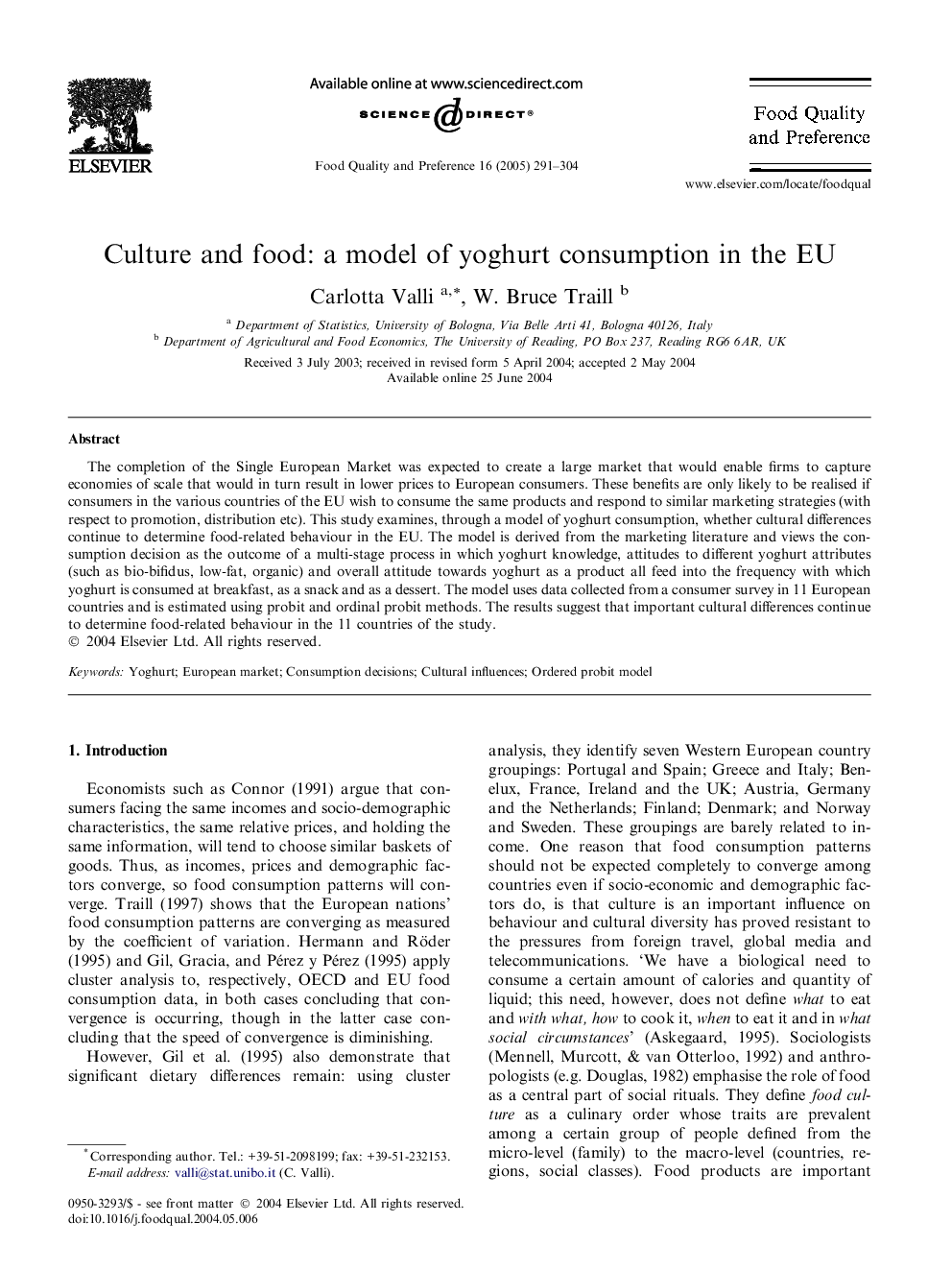| Article ID | Journal | Published Year | Pages | File Type |
|---|---|---|---|---|
| 9408963 | Food Quality and Preference | 2005 | 14 Pages |
Abstract
The completion of the Single European Market was expected to create a large market that would enable firms to capture economies of scale that would in turn result in lower prices to European consumers. These benefits are only likely to be realised if consumers in the various countries of the EU wish to consume the same products and respond to similar marketing strategies (with respect to promotion, distribution etc). This study examines, through a model of yoghurt consumption, whether cultural differences continue to determine food-related behaviour in the EU. The model is derived from the marketing literature and views the consumption decision as the outcome of a multi-stage process in which yoghurt knowledge, attitudes to different yoghurt attributes (such as bio-bifidus, low-fat, organic) and overall attitude towards yoghurt as a product all feed into the frequency with which yoghurt is consumed at breakfast, as a snack and as a dessert. The model uses data collected from a consumer survey in 11 European countries and is estimated using probit and ordinal probit methods. The results suggest that important cultural differences continue to determine food-related behaviour in the 11 countries of the study.
Related Topics
Life Sciences
Agricultural and Biological Sciences
Food Science
Authors
Carlotta Valli, W.Bruce Traill,
